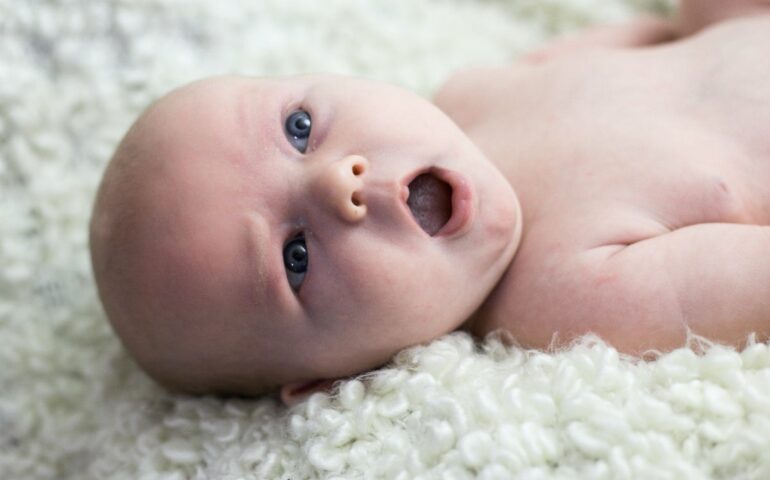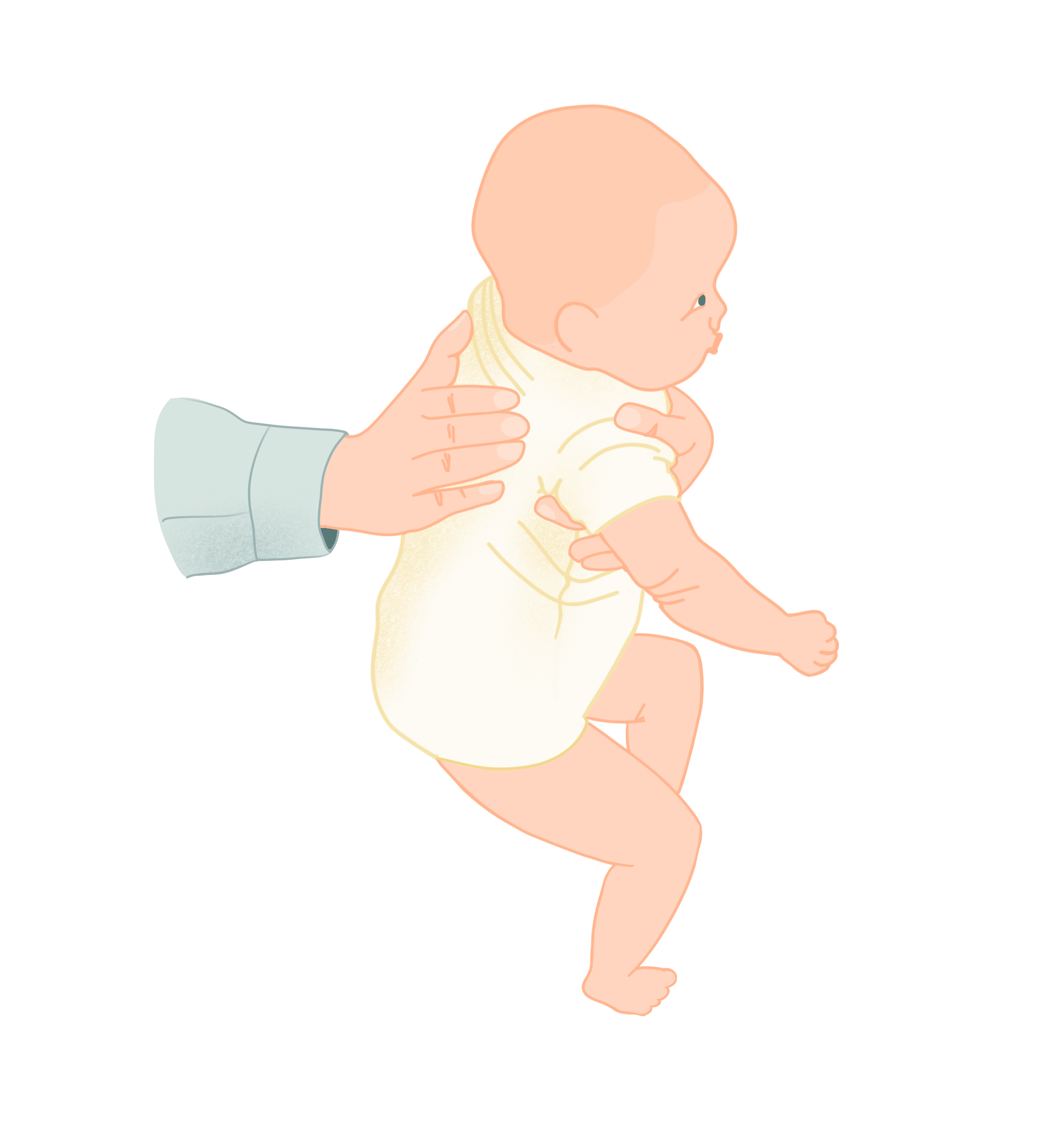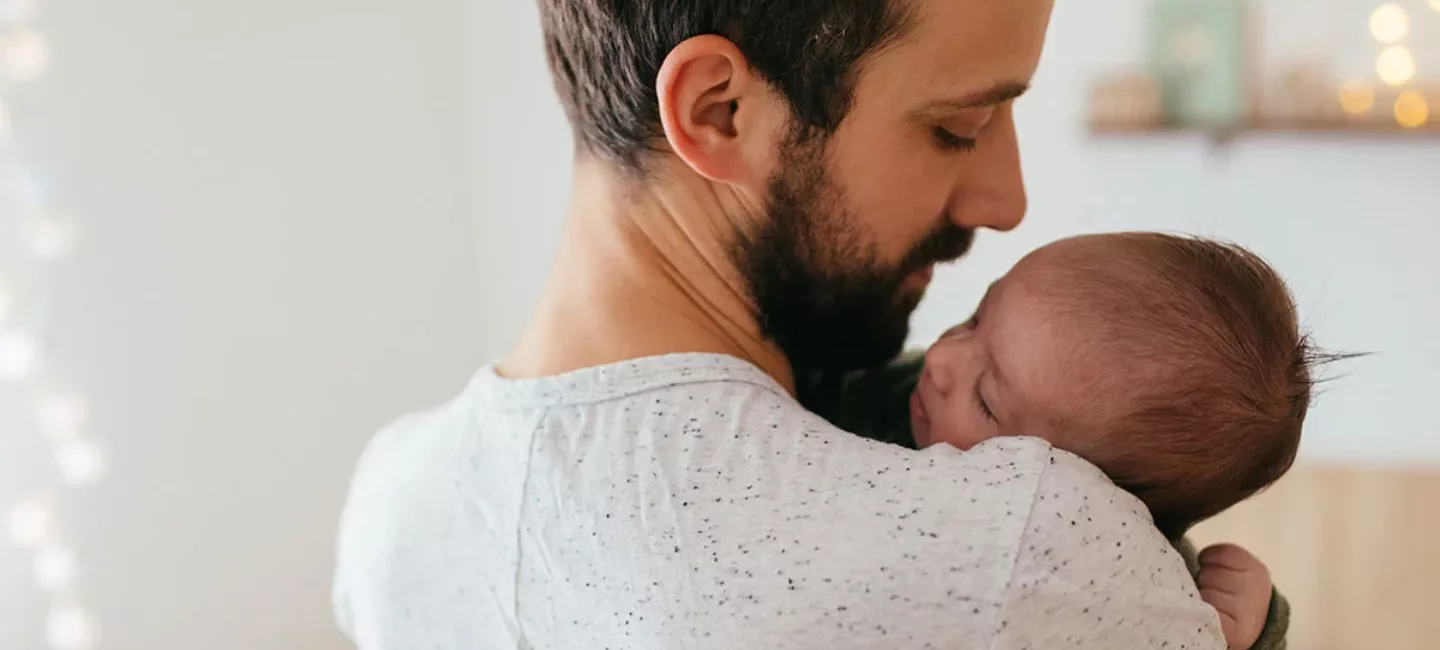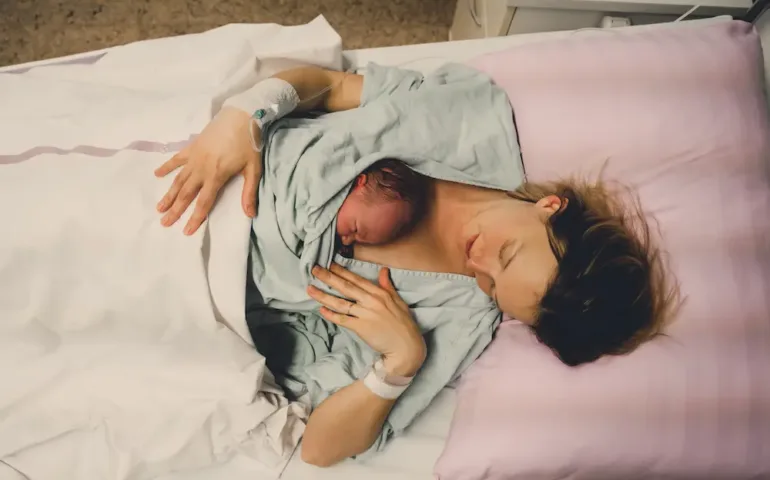
Particularly alarming for parents, infant hiccups are a harmless but very common symptom. What can be done to stop a baby’s hiccups during an episode? Is it dangerous for their health? What tips and advice can help stop hiccups and soothe your baby? When should you consult a doctor?
Let’s break it down!
Why do babies often get hiccups?
An infant’s hiccups are due to the immaturity of their digestive system development. This physiological phenomenon may seem surprising in a child, but it is natural and poses no risk to their health.
Did you know? Hiccup episodes begin as early as the 20th week of pregnancy (22 weeks gestation), when your baby is still a developing fetus. Your newborn was therefore already familiar with this sensation in your womb.
When your infant eats, their stomach expands and stretches the phrenic nerve, which controls the diaphragm (the muscle located between the chest and abdomen). An involuntary spasm of the diaphragm occurs when they ingest too much air or liquid: it’s this spasm that causes infant hiccups. As a result, after a meal that’s too quick or too large, a hiccup episode often follows.
Note: These hiccup episodes become less frequent as your baby develops.
An infant’s hiccups can also be caused by a change in position. In fact, hiccups mostly occur while lying down because the stomach presses against the diaphragm, triggering the spasm. Don’t worry, it’s still safe to lay your baby down, even during a hiccup episode. It poses no risk to them.
Babies fed with bottles are a bit more prone to hiccups than those who are breastfed because they swallow air more easily due to the nipple.
Can infant hiccups be dangerous?
Hiccups are not dangerous in themselves for a child, but they can be a sign of gastroesophageal reflux disease (GERD). Don’t hesitate to consult your pediatrician if you observe frequent crying, fever, vomiting, sleep disturbances, or agitation in addition to hiccups!
Hiccups tend to occur after meals or following spitting up. In that case, it’s likely reflux. In the vast majority of cases, hiccups are not dangerous for your baby, but if you notice that they’re uncomfortable due to frequent episodes, we recommend discussing it with a healthcare professional.
Want to learn more? Feel free to download the May app, where you’ll find plenty of resources to support and guide you throughout your journey as a new parent.
How can you stop a baby’s hiccups?
A hiccup episode lasts a few minutes, sometimes up to 30 minutes to 1 hour in some babies. Old-fashioned tricks used by adults to relieve hiccups do not work on infants.
Infant hiccups go away on their own and no medical treatment (especially involving medication) is needed. Likewise, hiccups have no impact on your child’s health or development.
Can a baby lie down when they have hiccups? How should you position your baby?
As mentioned earlier: it is perfectly fine to lay your infant on their back, even if they have hiccups. This poses no risk to their health or development.
However, to help stop hiccups more quickly and soothe your child, you can try changing their position by holding them along your forearm or gently rocking them. In this way, the diaphragm relaxes and the spasms gradually stop.
Can hiccups in babies be prevented? What are the tips?
Yes, there are tips and techniques to prevent and calm infant hiccups when you feel they’re making your baby uncomfortable.
During feeding, food can come back up because the muscular valve at the end of the esophagus, which helps keep food in the stomach, is not yet mature. Try feeding your baby more frequently but in smaller amounts to pace the meals. This helps avoid hiccups.
Also, when bottle-feeding, remember to pat your baby’s back and gently rock them to help release swallowed air. In addition, you can burp your baby every 2 to 3 minutes.
To calm hiccups, it’s often recommended to let your baby suck as swallowing helps open and empty the stomach. To do this, offer your finger, an anti-colic pacifier with adjustable flow, or a small bottle of water.

When should you consult a doctor for your baby’s hiccups?
Hiccups are harmless for your infant, completely normal, and should not worry you. They gradually disappear, even if they sometimes last a while!
However, if your baby experiences chronic hiccups, don’t hesitate to consult a doctor, pediatrician, or lactation consultant. Sometimes it’s the breastfeeding position, other times it’s the baby’s suction speed, or the hiccups may be a sign of GERD (as discussed earlier)…
So, hiccups are benign and quite common in newborns (just like in adults!). You can try to soothe your baby by changing their position, but hiccups generally go away on their own after a short while. Fortunately, good positioning during feeding and small habits like patting their back can help prevent hiccups. As always, if in doubt, trust your instincts and don’t hesitate to consult a doctor!
This text was translated from French by an artificial intelligence. The information, advice, and sources it contains comply with French standards and may therefore not apply to your situation. Make sure to complement this reading by visiting the May US/UK app and consulting the healthcare professionals who are supporting you.



